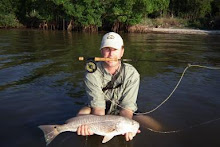Okay…so far we’ve covered how I ended up pursuing an MS and secondary math credential plus a few, very basic, suggestions about preparing for the WEST-B writing prompts. What follows immediately below is the single most helpful piece of advice I have about preparing for the writing prompts. Here goes: I suggest reading both prompts right away then proceeding with the other sections of the test (e.g. math and reading). It’s my experience that you will generate writing ideas, passively, as you work on other parts of the test. In fact, I make notes of potential thoughts or snippets, as they occur, throughout the test. That way I have them to work with when the time comes. I may be different that some, but I find this technique helpful and much better than reading a prompt and immediately trying to generate and essay.
Be sure to leave adequate time for the writing. I mentioned earlier that the math and reading sections were a touch longer than I expected based on the practice test. After completing the math and much of the reading sections, my on the fly decision was to stop short (I left blanks) in order to have an hour left to work out the essays. After switching gears I actually had only 45 minutes to work with. I have a strategic tip should you have to stop short, on the math or reading sections, as I did.
You’ll want to verify this you self but, I believe it is to the test taker’s advantage to guess rather than leaving blanks in the reading and math sections. Reason being, the test taker is not docked for incorrect answers. Instead, the score is based on the correct answers on your sheet. If so, even a WAG provides a chance of improving the score and there is no down side.
Good luck and I hope this helps!
Jim
Biking the Slow Road from China to Laos – Part 5/5
-
With additional writing by Will Stauffer-Norris In five or ten years, we
will come back to this place and zip from Kunming to Luang Prabang in mere
hours ...
9 years ago


4 comments:
Considering the time that you have for the entire test, 45 minutes it is not so bad, if you already have your ideas for writing. On the other hand, they do not care about the ideas so much; they just want you to prove properly any nonsense you choose. Another tip: first, choose the arguments that you able to think of and then pick the idea that match them.
My daughter suggested a different strategy for the WEST-B writing prompt. She suggested reading the questions first, and outlining your answers, before you even started writing the answers. That certainly helped me on the writing portion of the test. That allows you to organize your thoughts in the outline, and then stick to the outline in your answer.
Believe or not, I finished math at the speed of light to save more time for reading and writing, because English is my second language. However, since I spent a lot of time on reading (it is no wonder~), I had only 30 minutes for essay. The fact I had only 30 minutes really made me nervous and I couldn’t finish the conclusion well. I think time management is really important factor to succeed in west-B. Of course, my writing score was the lowest among 3 subjects.
Jim, I really liked your idea of reading the prompts first and then proceed to the rest of the test. I, personally, did not read the prompts first. In fact, the writing portion was left until last. I wished I had done what you did and at least had time during the test to think about the prompts. I agree with you that when in doubt on a MC question, just guess. Statistically, you have a 1 in 4 (or is it 1 in 5) chance of getting the question correctly. If you leave it blank, you automatically forfeit those points. Another advice I have for those taking the test is to either pace yourself on the MC questions, or use 2 sessions to complete all parts of the WEST-B. I believe the math section had 60 questions. If your math skills are good, you can finish in 1 hour or less. But when I heard people talking about the test afterwards, everybody complained that the math was a bit hard and took a very long time.
Post a Comment